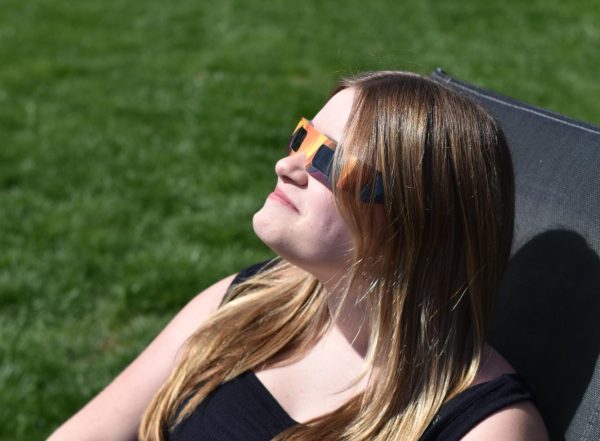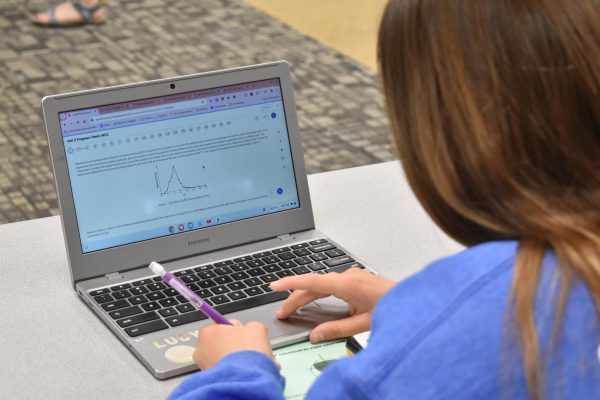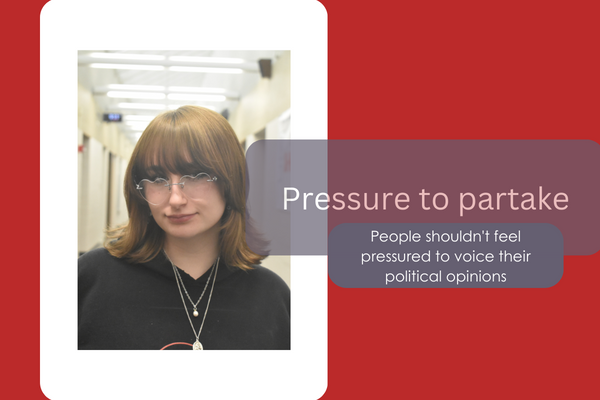The wall is not coming
January 24, 2019
As I’m sitting with my parents watching one of President Donald Trump’s addresses and listening to his comments, my mom and I are completely baffled at the fact that someone could possibly be so misleading with his comments. The demonization of Hispanic people and other minorities is just unnecessary, and the negative comments are only being used to try and gain support for the funding of the border wall.
On Dec. 22, 2018 Trump declared a government shutdown due to the disagreements between him and the U.S. Congress about the funding of the U.S.- Mexico border wall. On Jan. 9, 2019, in a prime-time address, Trump said that there is a “growing humanitarian and security crisis at our southern border.”
Quite frankly, I don’t believe that the “humanitarian and security crisis” at the southern border exists.
One problem Trump tries to use to support his belief in a crisis is drugs. It is evident that drug use has been a huge problem in the U.S., and Trump believes that the solution to drug problems is the wall. I do not believe building a wall will solve anything due to the fact that the market for drugs is in the U.S.
The U.S. is one of the top five countries for nearly every category of drug use when compared to European countries. According to the U.N., the U.S. comes in second in cannabis use behind Iceland. The U.S. is tied for first in cocaine use with Spain. In comparison to Europe, the U.S. leads use of opioids by a large margin. We lead the way with 61 users per 1,000 people, while second place, the Czech Republic, only has 27 users per 1,000. We also come in first for amphetamine-type stimulant use. These statistics all show that drug use is prevalent in the U.S. which could lead to people wanting to bring and sell their drugs here.
According to the 2018 Annual Drug Threat Assessment, the majority of heroin enters the U.S. at legal ports, so building a wall wouldn’t prevent that from continuing. Building a wall won’t stop drug vendors from bringing their products here. Despite Trump believing that the wall will solve drug trafficking, the truth is that countless other methods are being used besides simple transportation over the border.
Besides the use of legal ports, tunnels are also used to transport illicit drugs and the use of tunnels will probably increase if a wall is built. Other methods such as trains, trailers, boats, aircraft, catapults and air compression guns have been used and wouldn’t necessarily be halted by a wall.
Building a wall also won’t solve the growing problem of fentanyl since fentanyl is typically shipped directly from China. It sounds as if the only way to prevent drugs from ever entering our country, with Trump’s logic, is to just build a wall around the whole entire U.S. and barricade ourselves in. That being said, it seems as if the humanitarian crisis is all over the U.S., not just the southern border.
In multiple speeches by Trump, he solely targets Hispanics to make them seem like bad people to get support for the wall. The thing is that the actions of one person does not determine the actions of everyone else. He specifically points out cases such as an undocumented immigrant shooting a police officer in California. He’s using cases like these to sway people to his side, but anyone could have shot the police officer, Hispanic or not. According to FBI reports from 1980 to 2013, 52 percent of people that shot police officers were white while 41 percent were black. That leaves 7 percent for other races and ethnicities which includes Hispanics. What are we supposed to do about that? What are we going to do to stop shootings by white and black people? I can tell you that a wall won’t stop them.
Let’s think for a moment. Imagine that you are given two choices: either you join a gang and do what they want to or you die. Some would choose to join the gang, some may choose to die or some may choose to avoid doing either. The only way to do that is to try to escape. This is a common situation especially for those living in Honduras and other Central American countries. In 2014, Honduras was considered the most violent country that wasn’t at war. Some people would rather risk everything than stay in their violent home country. People just want better lives and it is clear that the U.S. has so many more educational and job opportunities.
Some Americans believe that undocumented immigrants are stealing their jobs and lowering their wages. In a study published by the National Academies of Sciences, Engineering and Medicine, economists and other scholars found that in the long run, there are “little to no negative effects on overall wages and employment of native-born workers.” They also found that higher-skilled immigrants have brought creativity and new ideas to the U.S. as well as adding on to the labor force ensuring growth.
On the flip side, I acknowledge that people being here illegally does cost money to the government. It is not as much as Trump claims though. In a tweet, Trump said that “illegal immigration costs the U.S. more than 200 billion dollars a year.” In a study by Jason Richwine and Robert Rector, they actually found that the cost, which included cost of services received minus their tax contributions, of undocumented immigrants was actually about 54 billion dollars. That is still a lot of money, but much less than what Trump claimed.
I also acknowledge that some undocumented immigrants don’t have to necessarily pay as much taxes as some do, but they’re still paying. Most immigrants have fake Social Security cards which means that they are indeed paying taxes as well as into Social Security. Some companies do pay their workers under the table or in cash meaning that they don’t have to pay taxes, but that doesn’t mean that is how everyone is. Some immigrants do pay taxes in hope that one day that can help them gain legal status.
Don’t get me wrong, I believe that something needs to be done to fix the problems with immigration. Some kind of reform for a quicker, more reliable pathway to being able to come to the U.S. needs to be put into place because some people don’t have time to wait for all the legal work to come in.
So I wouldn’t consider everything happening with the southern border as a “humanitarian crisis” as the people coming to the U.S. are escaping the real humanitarian crisis.







Mark Heller • Jan 28, 2019 at 3:53 pm
Hi!
I’m an attorney who represents immigrants and farmworkers at a non-profit law firm in Ohio. I am also a ’69 grad of SHS. Glad you are aware of the situation and that the current administration lies about immigrants and demonizes them.
Best,
Mark Heller